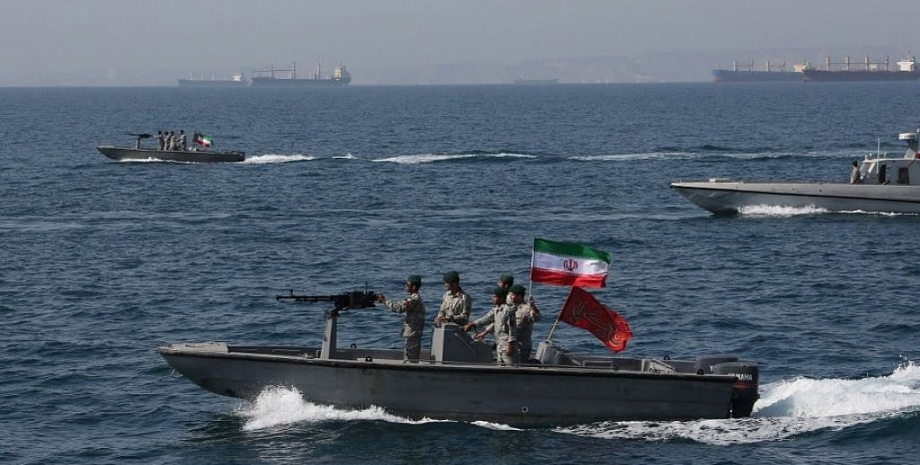
The Strait connects the Persian Gulf with the Indian Ocean and the sea routes through which 30 percent of the world's marine oil supplies and 20 percent of the supplies of liquefied natural gas (PPG), which makes this duct (width in the narrowest place is only 33 km in the world). This is a threat to which Tehran regularly resorts to the moments of tension or when they are pressed against the wall.
It is always possible to expect that this threat is frightened by the West, which fears the energy crisis and the potential economic collapse that will occur behind the closure of the duct, although it has not been implemented, perhaps because Iran may lose as much if no more than anyone else if the strait is blocked. Experts believe that this time it will all end in threats, but it is impossible to completely eliminate the likelihood: Tehran is rapidly eating options.
Their military and intelligence leadership is beheaded. Israel has an advantage in the air above Iran, including the capital, which gives it freedom of action to strike any assets that it recognizes, including oil and gas objects, thereby paralyzing the already collapsed economy. Missile strokes are painful in response to Israel, but do not change the situation. Iran allies on the "axis of evil" - China, Russia and North Korea - also do not rush to his aid.
It is not surprising that last night it became known that Iran secretly signals the US because of Arab mediators that he is ready to put an end to military action. But the situation is ambiguous. US President Donald Trump does not want to be involved in the next Middle Eastern conflict. Israel, despite all its impressive military success, is still not sure that Iran's nuclear objects will be able to destroy the US and their bombs.
Therefore, the restored prospect of settlement through negotiations has some attractiveness in Washington and Jerusalem. But the US red line remains: Iran has to give up every effort to develop a nuclear bomb. This may be too big for fans of a hard line in Tehran. They are likely to argue that the pressure on Israel can be exerted by threatening the West by economic Armageddon - by blocking the Strait of the Ormouz. Pain for Western economies, at least in the short term, can certainly be strong.
The cost of energy will increase dramatically, as oil prices will jump much higher than $ 100 per barrel (compared to about $ 70). Gas prices will also take off, repeating what happened after Russia's invasion of Ukraine in 2022. Economic restoration of Europe, whatever it may be, will be stopped halfway. The recession will loom on both sides of the Atlantic. But the event will not be the only affected region.
China imports 50 percent of its raw oil from the Middle East through the Strait of the Strait and takes from 15 to 20 percent of the LNG coming from the Persian Gulf. Its economy will also be paralyzed as other Asian economies. Iran is likely to think twice before striking such a strong blow to his main ally. And Iran will shoot himself in his leg: he exports more than 1. 5 million barrels of oil a day, all through the Strait of the Strait, 90 percent of them to China.
If he had lost this income, the Iranian economy would be on his knees quickly. Therefore, the closure of the Strait of the Strait can be equivalent to its theocratic regime. However, Iran has the opportunity to break the work of the strait, using mines, drones, land rockets and artillery along the coast, as well as the tactics of swarm with the participation of Kvir boats. But maintaining a blockade against the US Navy, supported by the British and French Navy, would be an impossible mission.
The United States support a formidable naval presence in the region, built around its huge fifth fleet, based in Bahrain, which contains a aircraft carrier group, landing forces, the infantry and "sea seals", mines, dietary and submarines. Then there are large rocket capabilities and jet fighters, including modern F-35 and F-16.
It is not enough for all this, the strike group of the USS Nimitz is heading to the Middle East, joining the USS Carl Vinson shock group, which has been there since April. Britain and France have a much smaller, but still significant naval presence in the Gulf, and France operates from its base in the UAE, and Britain-from Bahrain, an old ally. French frigates and British mine mines will strengthen the US efforts to support the sea routes open.
The so-called war in the Gulf of tankers in the 1980s between Iraq and Iran led to attacks on hundreds of vessels on each side, several of which were sank and sat on a shallow. But the supply of oil across the Strait has never been severely broken, and when the United States intervened, the Iranian fleet was virtually destroyed. Now Iran is at risk of repeating it.










All rights reserved IN-Ukraine.info - 2022